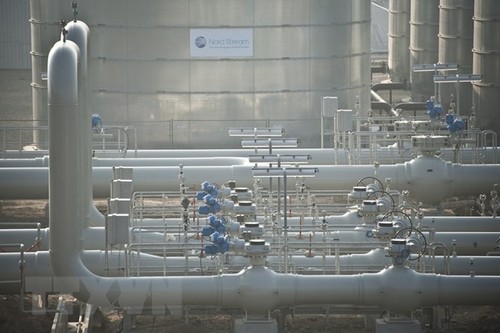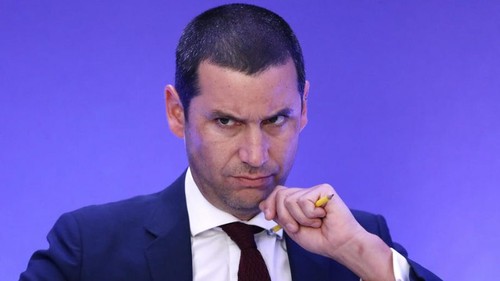 Nord Stream 1 gas pipeline in Lubmin, Germany. Photo: AFP/VNA Nord Stream 1 gas pipeline in Lubmin, Germany. Photo: AFP/VNA
|
EU members will reduce their gas usage until next March. If the supply becomes scarce, voluntary reductions will become mandatory.
Mixed reactions
Reducing gas consumption by 15% will help members get through the upcoming winter and could save 45 billion cubic meters of gas, according to European Commission estimates. That figure will be lower if any members request exemptions. The gas austerity plan was originally scheduled to last two years, but has been shortened. When this winter ends, they will discuss the gas plan for next winter.
Ahead of Tuesday’s meeting, 12 of the 27 members raised concerns about the proposed reduction. Last week, Portuguese Energy Minister Joao Galamba voiced Lisbon’s objection to the plan because, he said, it "does not take into account differences between countries". Greek Energy Minister Kostas Skrekas said Greece opposes the mandatory 15% cut. Poland's Climate Minister Anna Moskwa told reporters that Poland “cannot accept any decisions that are imposed on countries”, adding that “energy security is a national prerogative”. Despite voting in favor of the agreement, Moskwa insisted that Polish industry will not be forced to cut gas consumption to help other countries. Hungary, the only country that voted against the agreement, said “this is an unjustified, useless, unenforceable, and harmful proposal that completely ignores national interests”.
Earlier, EU members flatly rejected an EC proposal to empower Brussels to impose emergency gas cuts. They want the 27 member states themselves – not the EU executive body in Brussels – to decide when and how to deliver on commitments.
 Portuguese Energy Minister Joao Galamba. Photo: EPA Portuguese Energy Minister Joao Galamba. Photo: EPA
|
Energy storage
Some fear that a 15% reduction in demand will still not be enough to prevent gas shortages in Europe this winter. The level of reserves differs between countries. The EU as a whole has only cut gas consumption by 5% so far, despite a sharp increase in gas prices over the past several months and a tighter daily supply from Russia.
The EU plans to replenish 80% of its storage capacity by November 1 to secure supplies for the peak winter months. Germany's target for the end of November is 95%. According to European Gas Infrastructure, Europe's gas reserves are now at about 66% of capacity. As of July 23, Germany's gas reserves were 65.9%. Kateryna Filippenko, principal analyst at consulting firm Wood Mackenzie, says Europe is likely to have no more than 20% of its gas reserves left by the end of March, a very low level.
Analysts say that European countries will need to work together if they are to get through the winter without major losses. But even if they do, next winter’s gas prices are likely to remain high.